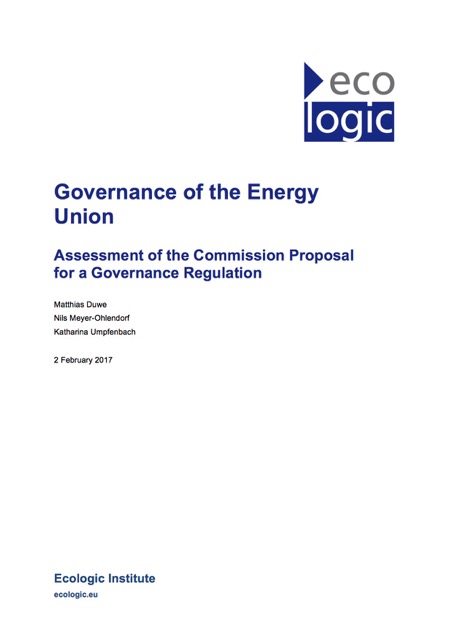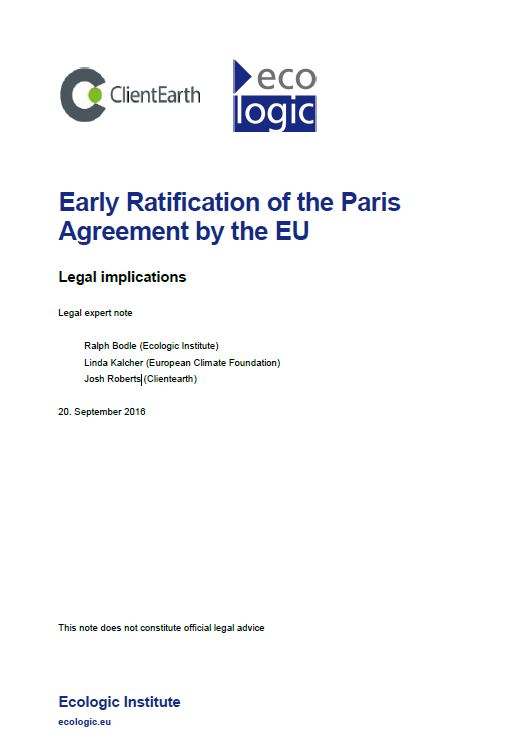Happy Birthday, Paris Agreement! Here is how the EU will be celebrating
State of play on the negotiations on the Energy Union Governance Regulation on three core elements of the Paris Agreement
- Publication
- Citation
Duwe, Matthias (2017): Happy Birthday, Paris Agreement! Here is what the EU is getting you. State of play on the negotiations on the Energy Union Governance Regulation on three core elements of the Paris Agreement - ahead of decisions in the European Parliament and Council, Report, Ecologic Institute: Berlin
The EU runs the risk of not properly implementing key elements from the Paris climate treaty. As the Paris Agreement prepares to celebrate its second birthday on 12 December 2017, the EU is reaching a decisive stage in the negotiations on the so-called Governance Regulation in both the European Parliament (vote on December 7) and Council (meeting on December 18). The European Commission's proposal for a new climate and energy governance framework is falling short in fully taking account of key provisions of the Paris Agreement. It published a draft Regulation on the Governance of the Energy Union on 30 November 2016, in which it makes only scant reference to the Paris Agreement. Ecologic Institute analysed specifically how three key elements of the Paris Agreement are being taken up in the EU: the long-term objectives, the 5-year pledge & review process and the planning instrument "long-term strategies".
Internal deliberations by EU Member States in the Council of the European Union show minor improvements over the Commission proposal. In the European Parliament, amendments have been proposed that could improve the proposal significantly on all three issues.
The success of the Paris Agreement depends on a sincere implementation of its core elements, like a review process to increase ambition over time. The Governance Regulation provides a vehicle through which the EU could internalise the Paris processes and thereby confirm the EU's credibility as a champion of the Paris system. Improvements need to be made to ensure the EU has a proper "implementation birthday gift" for the Paris Agreement.
Conclusions
A sincere implementation of the Paris Agreement in the EU would do the following:
- Long-term target: an EU climate and energy governance system should reference the Paris Agreement's long-term objectives explicitly – and consider what an appropriate EU level expression should be. EU climate and energy policy needs this clear sense of direction – and the commitment to it expressed by enshrining this specifically in EU legislation.
- Review process: the Paris Agreements NDC cycle is clear in its timing, and the EU needs to deliver NDCs in 2020 and in 2025 and 2030 and so on – and spell out a clear process for how and when and through whom it will determine what it can contribute, as a fair share to the global mitigation effort. This process should involve all institutions – and could benefit from independent analytical input.
- Long-term strategies: are an undervalued tool with much potential to inform short-term policy and create a broader vision for future developments. There is much interest in many EU Member States, and a lot of experience already exists – as well as dedicated governance systems to implement them, in the form of overarching national climate laws. The EU needs to harness this potential and interest to start a dialogue on transformation that can deliver political support for the required structural changes.








